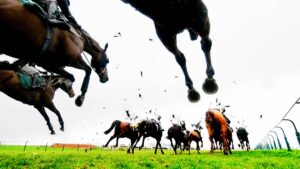Think Big: The global economy needs a double shot of confidence in the post-Covid recovery

Pic: d3sign / Moment via Getty Images
After an unprecedented shellacking from COVID-19, the global economy has a long road to recovery ahead.
To be sure, the September quarter offered a glimmer of hope compared to the depths of June, when the International Monetary Fund forecast a mammoth 2020 contraction of 4.9 per cent.
In a research note this week, CBA strategist Carol King said the IMF has dialled back the expected decline to 4.4pc.
But King added that recouping the lost growth will be a difficult and uneven exercise, for two reasons;
1. The varying scale of the health crisis in different countries; and
2. Variations in the policy support response.
And for the recovery to be successful, King said both of those issues will need to be addressed with a little shot of confidence.
Economic confidence
Across major Western economies, the importance of the policy response to COVID-19 so far has been well documented.
King said a feature of the post-Covid policy environment is “unprecedented coordination” between the monetary and fiscal side.
However, with interest rates at or near zero, monetary policy is almost tapped out.
“A more powerful confidence shot will have to come from fiscal policy, because of its ability to directly stimulus late the economy,” King said.
She cited additional IMF data which suggests fiscal policy gets a better bang for its buck when implemented during recessionary periods.
And with less ammo on the monetary policy side, both US Fed chair Jerome Powell and RBA governor Philip Lowe have repeatedly called for government stimulus to drive the economic recovery.
As a case in point, the main story on stock markets right now is whether or not the two sides of Congress will agree on an extended stimulus package ahead of the US election.
More broadly, King said the global economy recovery will track as far as fiscal policy will take it.
“But for this ‘shot’ to be effective, fiscal support needs to be sufficient, timely, and not be withdrawn prematurely,” King said.
Health confidence
Even if fiscal policymakers successfully unleash both barrels to prop up growth, it won’t be enough to support a full recovery.
To achieve that, public confidence will have to be restored in the health situation, King said.
With the world now approaching one year since the first outbreak, health experts have a lot more data to work with compared to the first round of global panic in March.
In turn, there are a number of variables in play when it comes to the public health response.
Two such developments are the advancements in some treatment options, as well as improved testing and tracing procedures.
And robust data about the dangerous skew towards severe symptoms in older patients saw the average age of US COVID-19 patients fall to 38 in August from 46 in May.
But when viewed in aggregate, King observed that all those variables are just noise. As long as the virus lingers, concerns will remain.
As such, the only real ‘confidence shot’ on the health front is a vaccine.
Citing Milken Institute data, King said there are currently 213 COVID-19 vaccines in development.
Of those, 36 have reached the clinical stage while eight are in Phase 3 trials – the large-scale component where the drug is tested on thousands of people to test for any abnormalities.
This table summarises the number of vaccine pre-orders by major developed economies, among the eight treatments at the Phase 3 stage.
At the same time, the difficulty of accelerating a multi-year medical process into 12-18 months isn’t lost on most observers.
According to latest reports, the earlier vaccine available for advanced economies will be the joint project between Pfizer and BioNTech, which could be slated for late November.
But King noted that “a rigorous regulatory review of a new vaccine typically takes at least one year in normal times”.
And health regulators are holding to strict standards around accelerated testing for emergency treatments, despite increased political pressures.
So a complex path forward awaits, particularly on the health side.
In the meantime, markets will be more focused on developments they can control – namely, whether US fiscal policy makers pull the trigger on more spending.
“The bottom line is that economic policies, particularly fiscal policy, and a COVID-19 vaccine will provide the confidence shots that are necessary to propel the global economy forward,” King said.
UNLOCK INSIGHTS
Discover the untold stories of emerging ASX stocks.
Daily news and expert analysis, it's free to subscribe.
By proceeding, you confirm you understand that we handle personal information in accordance with our Privacy Policy.








